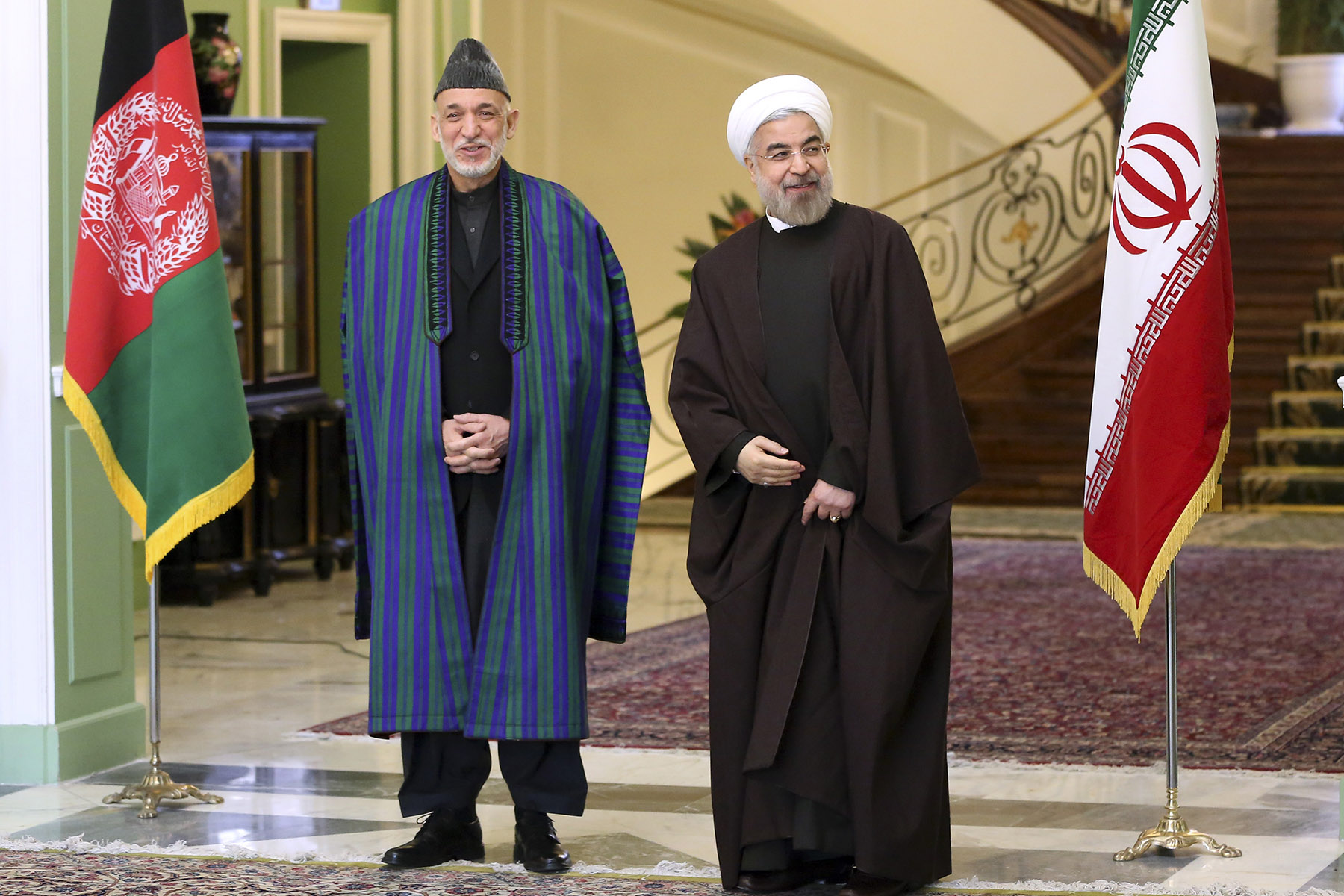
Is Hamid Karzai crazy? on the face of it, the Afghan President has said lots of odd, inflammatory and contradictory things. Over the past year, he has criticized the U.S., wondered whether its presence in Afghanistan has done any good at all, refused to sign an Afghanistan-U.S. security pact and called members of the Taliban his brothers. This week the New York Times revealed that he has been conducting secret negotiations with the Taliban. What can he be thinking?
Maybe Karzai is looking at what happened to one of his predecessors. In 1989 the Soviet Union withdrew from Afghanistan. The President it had backed, Mohammad Najibullah, stayed in power, but within months a civil war broke out, forcing him to seek refuge in a U.N. compound. In 1996 the Taliban rode into Kabul, captured Najibullah, denounced him as a foreign puppet, castrated him, dragged his body through the streets and then hung him from a traffic barricade. For good measure, they did the same to his brother.
That year was a gruesome replay of an earlier piece of Afghan history that Karzai also knows well. During their 19th century invasion of Afghanistan, the British put in place a local puppet, Shah Shuja, who was assassinated after their withdrawal. In fact, as the historian William Dalrymple has pointed out, Karzai comes from the same tribe as Shah Shuja–and the Taliban come from the tribe that brought down Shah Shuja in 1842.
There are many important differences between the past and present. But Karzai is probably looking at the evolving geopolitical landscape. The U.S. has tired of its longest war, debating only the size of the small force it will leave behind, mostly for training. The Taliban continue to have many strongholds in significant parts of the country. Pakistan continues to support the Taliban–and that is likely to expand as America withdraws and Islamabad seeks to fill that power vacuum.
Karzai might be playing an erratic game of brinkmanship in his negotiations with Washington, but he might also be trying to navigate a post-American Afghanistan. While U.S. troops might well remain and some American aid will continue, Afghanistan is going to look very different in 2015 than it does today.
Consider these facts from a highly intelligent forthcoming book, War Front to Store Front, by Paul Brinkley: In 2009, Afghanistan had a nominal GDP of $10 billion. Of that number, 60% was foreign aid. The cultivation of poppy and the production and export of raw heroin–all of which is informal and underground–accounted for 30%. That leaves 10%, or $1 billion, of self-sustaining, legitimate economic activity. During the same year, the U.S. military spent $4 billion per month to protect a country with a real annual economic output of $1 billion.
“Kabul is a metaphor for the country,” Brinkley said to me. “It is a city sized for 500,000 people. It has grown to 8 million, who have been drawn to the city by the massive influx of foreign money, military and nonmilitary. But that money is going to slow down very significantly soon. What happens then?”
Brinkley worked for the Pentagon to build companies in Iraq and Afghanistan–fascinating experiences he recounts in the book–and came to the conclusion that the single most important task in both countries was to create a self-sustaining economy, to which the U.S. paid little attention. “Our focus in Iraq and Afghanistan was to get the politics right–have elections–and somehow economics will flow naturally. But that’s not actually how it works. We need to get the economics right first, create a self-sustaining market economy, and then the politics will get much better,” he explained to me. In the West, he points out, trade and markets led to individual liberty and political freedom, not the other way around.
He is pessimistic about Afghanistan’s prospects, even though one of his projects was to map the country’s mineral wealth, which he estimates at a staggering $1 trillion. “Without proper structures and management, it will become Congo,” Brinkley says, arguing that the country needs three to four more years of political stability to build an economy. Meanwhile, the national mood is worsening.
“Imagine living in a nation in which your national government was totally dependent on charitable donations,” Brinkley writes. “Would you respect that government? … Would you not assume they were puppets of the international donors who were propping up the government?” Hamid Karzai might be pondering just these questions as he plans his next crazy outburst.
TO READ MORE BY FAREED, GO TO time.com/zakaria
More Must-Reads from TIME
- Donald Trump Is TIME's 2024 Person of the Year
- Why We Chose Trump as Person of the Year
- Is Intermittent Fasting Good or Bad for You?
- The 100 Must-Read Books of 2024
- The 20 Best Christmas TV Episodes
- Column: If Optimism Feels Ridiculous Now, Try Hope
- The Future of Climate Action Is Trade Policy
- Merle Bombardieri Is Helping People Make the Baby Decision
Contact us at letters@time.com